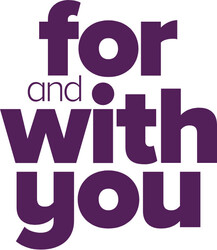Life is easier when you have a plan.
Managing your money is an important life skill that is sometimes neglected. How you spend and save your money can affect your life and lifestyle now and in the future.
Here are some ideas to help you start planning:
Six strategies for managing your money.
-
Create a budget.
This is the first and most important step in getting control of your finances. Without a plan, it’s hard to reach your goals. Make your budget as realistic as possible otherwise you will struggle to stick with it. Make sure you reward yourself when you have stuck to your budget for a decent period of time. Learn how to create a budget.
-
Save for large purchases.
Saving up for larger purchases gives you many advantages. As well as avoiding unnecessary interest payments on your credit card, it gives you time to research your purchase thoroughly. You might discover you don’t need the item after all or find the item you want at a better price.
Look at review sites to make sure your purchase is worth your hard-earned money.
Use our Budget Planner Calculator to work out how much you need to put aside each pay for your purchase.
-
Save money on groceries.
Consumables take up a decent portion of most people’s wages, but for some reason we don’t seem to put the same amount of effort into finding savings there as we do for other things. A few small changes can make a big difference to your bottom line.
- Plan your weekly meals
- Write a shopping list
- Shop for groceries online
By taking a few minutes to plan out the week’s meals, you will know exactly what groceries you need to get at the supermarket and will be less tempted to buy things you won’t end up using.
Make your list and be determined to stick to it. Many people have commented that by doing their grocery shopping online they are less tempted to buy those extra items that come from “window shopping” at the store. Another helpful tip is to purchase extra of the items on sale you use regularly. As meat is often the biggest expense, try to plan at least one ‘meat free’ night per week. Buy seasonal produce from local growers.
-
Set up an emergency fund.
Many things can constitute an ‘emergency’. It could be an unexpected visit to the hospital, a gas or electric hot water system needs replacing, or a sudden job loss.
Any of these things plus many others can quickly drain your finances. By having 3-6 months’ worth of expenses set aside, at least some of the stress of an unforeseen situation can be lessened. Start with a $1000, then keep contributing to the fund on a regular basis.
-
Brown bag it!
Another quick way to manage your money is by reducing your expenses. Did you know if you buy lunch for $10 each day of the working week for a full year, you will have spent over $2,500 just on lunch? Add to that your 11am coffee and muffin and you are looking at some serious money over the year.
If you are time poor, instead of eating out, consider a food subscription service as many of them don’t cost much more than buying the groceries yourself and are healthier than takeaway.
-
Try the 50/30/20 Rule.
If you find budgeting difficult and prefer a simple formula, try the 50/30/20 rule. The basic idea is that you use fifty per cent of your salary on your life necessities such as your food, mortgage, rent, transport and bills.
Thirty per cent is for your wants, those unnecessary but fun things we all need to make life enjoyable e.g. clothing, holidays, going out. The last twenty per cent is used for debt payments, retirement planning and savings. Set up automatic payments to make it even easier.
You might also like...

Create a budget.
We are here to help make budgeting easier with our ‘do-it’ yourself’ budget planner that will help you create a budget based on your earnings, spending and savings.
How to create a budget
Managing debt.
Whether your debt is small or large it needs to be managed. We’ve got some tips to help you put together a repayment plan.
Three strategies for managing debt
Savings plan.
A savings plan is a great way to reach your financial goals. Having savings can help protect you in an emergency and give you peace of mind.
How to set up a savings planPlease read this important information.
| This information is of a general nature only and does not take into consideration your objectives, financial situation or needs. The information must not be relied upon as financial product advice. Before acquiring any product you should read the relevant guides, Product Disclosure Document, and consider whether a product is suitable for your circumstances to decide if a product is right for you. | |
| Beyond Bank Australia Ltd ABN 15 087 651 143 AFSL/Australian Credit Licence 237856. © 2024. |



